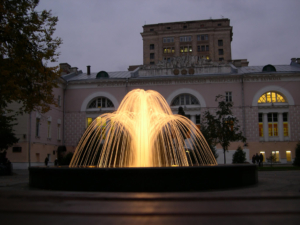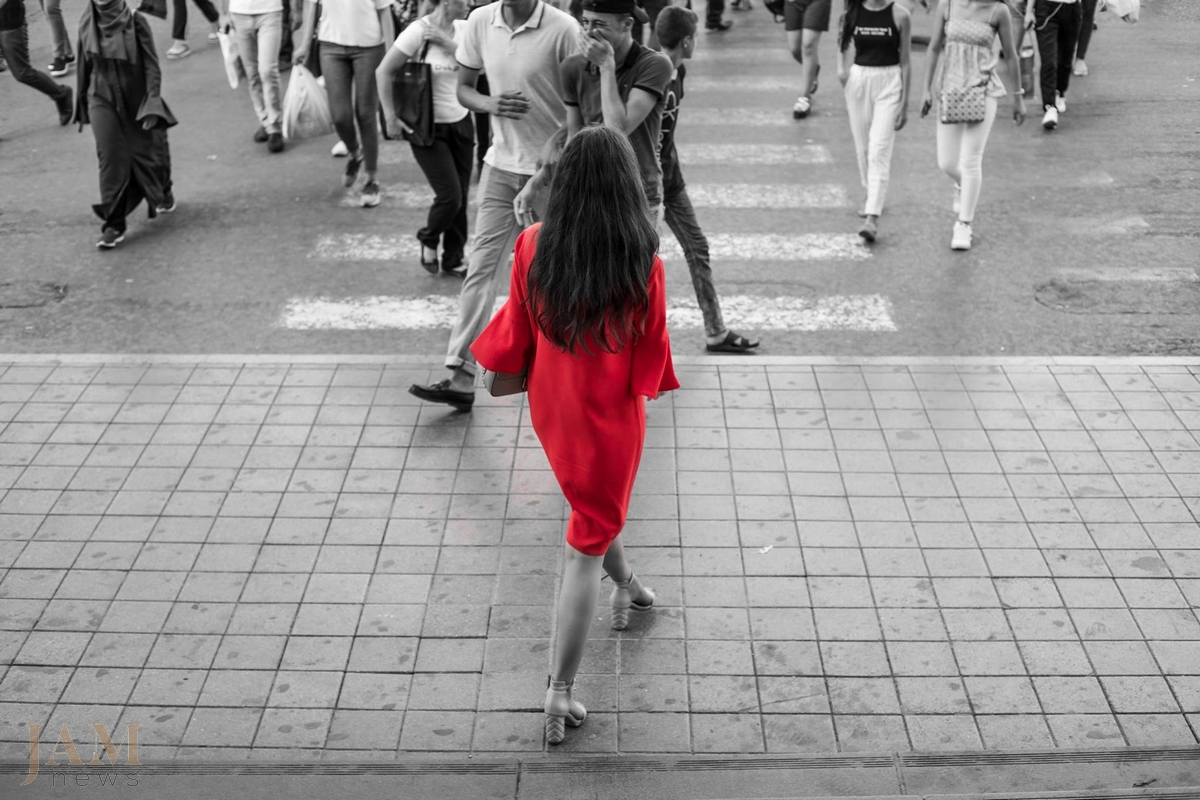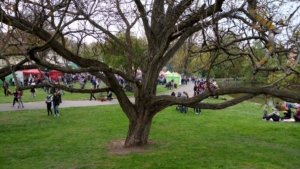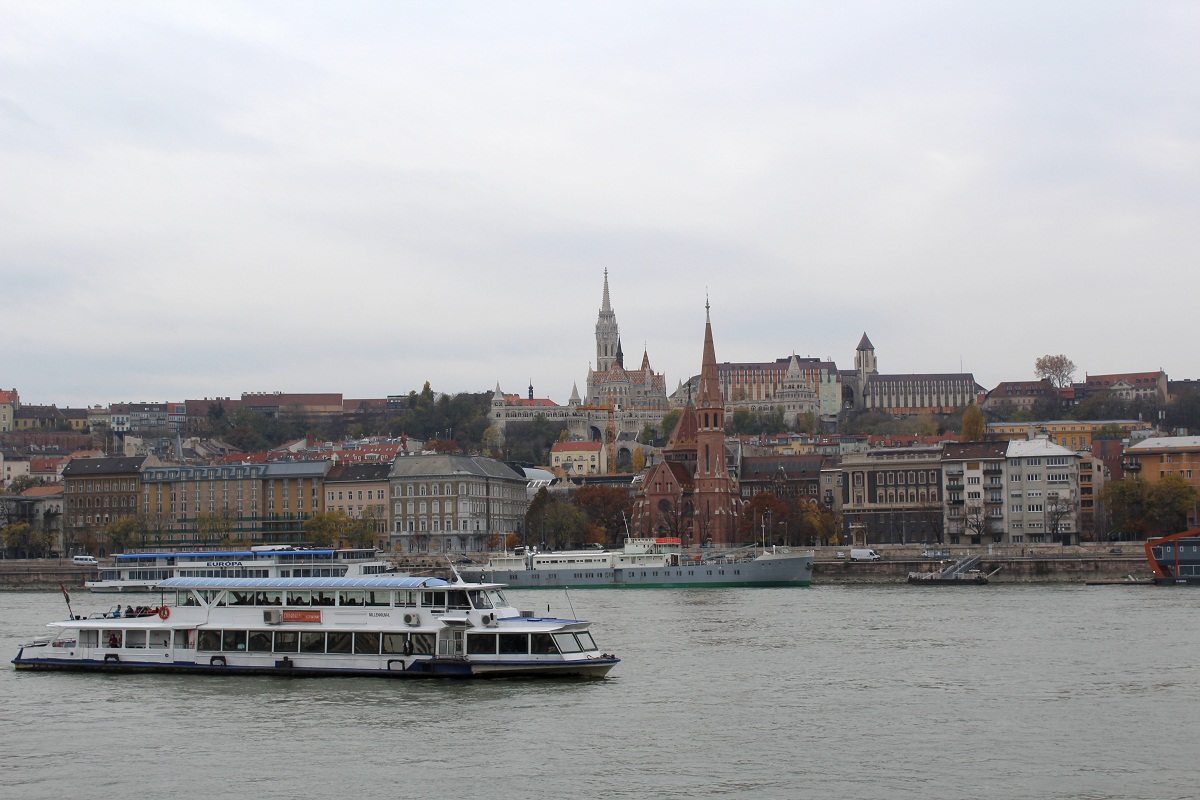What do Azerbaijani students like and dislike about studying abroad?
Studying abroad is the dream of many Azerbaijani students. We talked to some who had the chance to make their dream come true, and asked how difficult the process was and if it was worth it.
How many leave?
There were around 242,000 college students in Azerbaijan in 2017. About 11,000 are currently studying in Russia, and another 15,000 are in Turkey.
• Why Azerbaijani youth prefer to study in Turkey
• Georgian student: “Americans are taught to think freely in schools”
Students go as far as Europe and even the USA, with both scholarship and paid programmes for foreign students in universities across the world. Other options popular among Azerbaijani students are the German academic exchange service DAAD and the Russian organization Rossotrudnichestvo.
Each chooses a destination based on their goals and possibilities. Russia is an easy option for Russian-speaking Azerbaijanis, with the benefit of a visa-free system. Turkey is a country with a culture that is easily understandable to Azerbaijanis and the language is similar – the visa-free bonus is also present. Europe is for those who have more resources and ambitions, and for those who want to move there.
Russia – “They’ve turned the fountain off so it’s time to study”
Ilya left Baku to study at the Bauman Moscow State Technical University. He has been living in Russia for about two years.
A dream or an accident?
“I went to Moscow to study because of a girl. We were dating long distance, and I went there several times for the sake of meeting her. We broke up before I moved, but everything was ready for the move and there was no point in retreating.
“I had another goal – to live in Moscow, try to break through and live separately from my family.”
Where do they teach best?
“In Baku at the Oil Academy I mostly twiddled my thumbs. I thought that when I’d begin my masters at Bauman they’d make me learn. But I ended up doing the same thing there.
“To illustrate the level of requirements for students in Baku: I can say that I “wrote” my thesis in fifteen minutes by downloading it from the internet.
“At Bauman, there are higher requirements and more professional teachers, but I cannot say that the difference is enormous. Bauman is an engineering university, and they ask a lot from civil engineers and metallurgists, but scientific and technical specialties get it even worse.
“Bauman students themselves refer to the university as a sharashka [ed. A secret research and development laboratory found in the Soviet Union’s gulag system]. In other words, a university from which you can not get expelled. To get kicked out of Bauman you have to be a complete idiot.
“There is a fountain in the courtyard at Bauman. In November the frost sets in and the fountain is turned off and covered with a special dome. Students have a custom: they begin to prepare for winter exams when the fountain is turned off. The same is true for the spring semester – when the fountain is turned on in March-April, we have to start working again.”
Where is it better to live?
“I am not going to return to Baku. During my year of living and working in Moscow, I had more close acquaintances than in twenty years of life in Baku.
“There is a different standard of living there, and considering that my main work takes place at night – I work at a bar now – it’s much easier for me to work in Russia. I’d go to Baku only to take a break.”

Prague – “No one even cares in Europe if your lipstick is off”
Leila [ed. name changed at the request of the respondent] is studying for her master’s in Prague to be a psychologist. She has been living there for a year.
A dream or an accident?
“I always wanted to leave. My parents suggested I apply to a master’s programme in the Czech Republic, and I agreed. First I studied Czech, and then I began my master’s degree.”
Where do they teach best?
“In Europe you can create your own curriculum. Therefore I have enough free time for myself besides studying.
“In Baku I studied at a branch of the Moscow State University, so I can’t compare Azerbaijani universities with Czech ones. Unlike Moscow State University, psychology is studied here according to the theories of European scientists, and not Russian, as we did.
“Maybe after studying the European approach to psychology, I will try to get a Ph.D in America.”
Where is it better to live?
“I don’t think I’ll come back because there are far more opportunities to earn money abroad. Even a student can get a job with a salary of $6 per hour.
“The first two months, I was “broken”, I really wanted to go home and I could not understand others. Now I do not understand people in Baku.
“If in Baku, for example, I were to crookedly apply lipstick, at least five girls would not spare the energy to cross the street to tell me my lipstick is off. In Europe, nobody cares.
“At first it seemed to me that the people here were angry and cold, and then it became very comfortable. I almost stopped putting on makeup. I began to wear comfortable clothes, and did not feel ashamed of it.
“Abroad, nobody cares about you, but in a good way. That is, if you approach a person and say, ‘I’m sorry, I don’t know how to get to Charles Bridge’, then you will surely be shown the way, and some even walk you. It’s just that there is a lot of respect for personal space and personal boundaries of other people.”
Hungary – “The first year and a half I felt like I was in prison”
Togrul [ed. name changed at the request of the respondent] studied for a bachelor’s degree in Turkey, then graduated from a master’s programme in Hungary and returned to Baku a year ago.
A dream or an accident?
“I was sure that I would not be able to get an education in my specialty in Baku.
“When I applied in 2011, tourism in Azerbaijan did not exist at all, but I wanted to study the economics of tourism.”
Where do they teach best?
“I didn’t want to study in Azerbaijan because of corruption in the field of education.
“Now I consider myself a good specialist, but in Baku I see two opportunities for myself – physical work, or some work as an organizer. But I can’t find work in my specialty – tourism.”
Where is it better to live?
“I remain a native Bakuvian. I also returned to not give up my native city to migrants from the rural areas.
“In Turkey it was easy for me to adapt, if only because I am familiar with Turkish.
“In Budapest things were unbearable. For the first year and a half I felt like I was in prison. My ideas about morality were so far from European that I would have preferred a real prison instead.
“On Fridays and Saturdays the center of Budapest reminded me of a huge open-air public house. People get drunk in clubs and sleep in parked cars.
“Once I was sitting in the company of my friends at a restaurant, at about four o’clock on a Saturday morning. Two girls came, obviously younger than eighteen. Having ‘meditated’ for a bit over their plates, they fell asleep. One of the customers raised his leg – like in that logo of the World Taekwondo Federation – and photographed himself with them in the background. The restaurant owner did not stop him, he just laughed.
“In addition, aggressive nationalism is flourishing in Hungary – both in state structures and among the people. This manifests itself so clearly that complaints lodged by the Romani people for example are not even considered – on principle.
“Drugs are sold right in the centre of Budapest. In Turkey students at least have to go to the suburbs for this.”
Germany – “In Germany, if you wear bright clothes, people will squint at you”
Sabina [ed. name changed at the request of respondent] was born in Siberia, went to school and studied at university in Azerbaijan and entered a master’s programme in Germany.
A dream or an accident?
“I always knew that I would move at some point, and in the last year of my undergraduate degree I began to choose where to go. It was important for me to choose a country with more career opportunities. Despite the fact that I am an English major, I chose Germany: I love the language and culture, plus the conditions of stay for graduates of German universities became very attractive one year before I went.
“I received a scholarship from DAAD, went first to four-month courses and then to the town of Fulda. I studied communication and political science within the EU.”
Where do they teach best?
“I have some issues with education in Germany, but I can only judge the humanities. Technical education is, of course, superior. The shortcomings, in my opinion, are bureaucracy — the system is still full of paperwork and it’s too narrow.
“In Azerbaijani universities, philologists studied mathematics, psychology, linguistics and literature. In Germany, there was a more “pointed” approach to subjects.
“As far as I know, education is better in the USA. Therefore I want to continue studying there.
“But the level of freedom and attitude towards students is better in Germany than in Azerbaijan. In Azerbaijan, a student is treated like a child who needs to be controlled – strict attendance, a lot of theory, but little practice. In European universities, no one cares about attendance – the main thing is to complete assignments and pass exams.
“For our specialty, an important part of the training was direct contact with European politicians. Therefore we were taken to Brussels and to Strasbourg to the Council of Europe and the European Commission, where we (divided into groups) had to present our presentations and questions to politicians on various political issues facing the EU.
“My group spoke with representatives of the Green Party on the topic of the migration crisis in Europe and how to solve it. We discussed how wise it was to expand the EU in 2004, to include Poland and countries of the Baltic states. It was a terrific experience.
“Unfortunately, this is impossible in Azerbaijan.”
Where is it better to live?
“In Azerbaijan it was difficult for me to get over the rigid hierarchy of society, its collectivism (everyone is responsible for everything, everyone has something to do with you, even your second cousin’s grandmother’s cousin) and patriarchy.
“On the other hand, it is easier to make friends and get closer to people in Azerbaijan. Relations between people are also warmer in general.
“In Germany, if you put on make-up, wear bright clothes (which in Azerbaijan would be just everyday), they will always look at you disapprovingly.
“German thriftiness is seen as pettiness and stinginess in Azerbaijan.
“My Azerbaijani friends were going to go with some people to a club, and there was a German boy and girl with them. The entrance fee turned out be five euros each. The German boy made a complete scene for 10 minutes at the entrance of the club, arguing that it was too expensive. His girlfriend was of the same opinion, and the situation got tense. In the end, my friend gave in and just paid for both of them.
“If you owe a German two euros, rest assured that he will not forget it and will eventually ask for it even if you gave him 50 treats the day before. On the other hand, if they owe you, they will definitely return your money.”






















